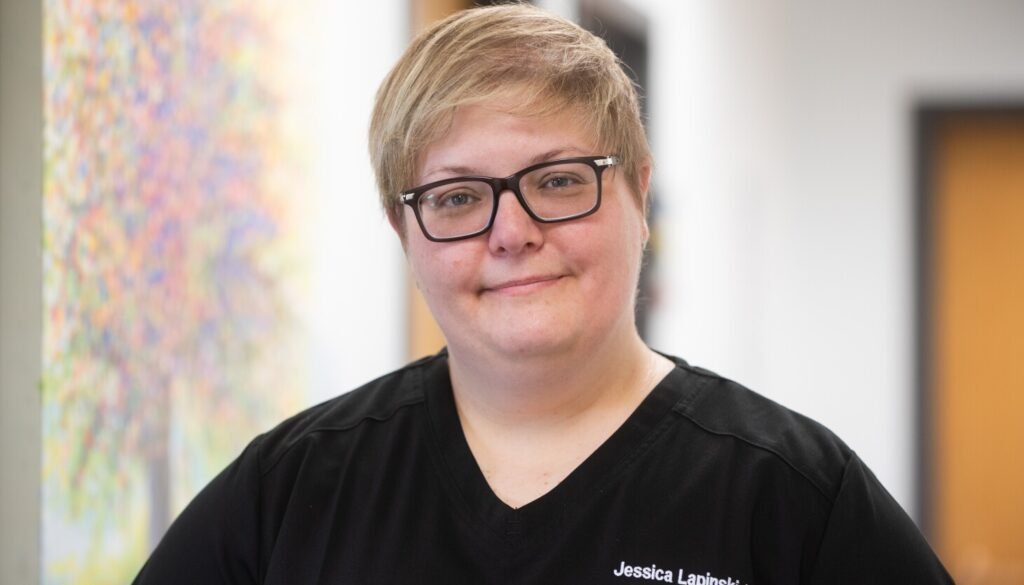Chicago Hospitals Reduce Care for Trans Youth: Advocates Respond with Urgent Support
As hospitals in Chicago begin to scale back on gender-affirming care for transgender youth, advocates are mobilizing an innovative rapid response team to ensure that families have access to alternative medical support and financial assistance. With the rising concerns about the availability of crucial medical services, this initiative aims to connect families with qualified healthcare providers and cover associated costs, ranging from medical appointments to necessary medications.
Building a Network of Support
The rapid response team, led by Trans Up Front Illinois, has established a network of over 30 healthcare providers across Illinois, including physicians and nurse practitioners specializing in hormone therapy and puberty blockers. Approximately 10 physicians also offer surgical procedures for those in need. According to Asher McMaher, the executive director of the organization, this community-driven effort is crucial given the recent reductions in care.
Why the Shift?
Many of the practitioners involved in this network do not rely heavily on federal funding, making them less susceptible to the pressures resulting from recent federal policies targeting gender-affirming care. McMaher emphasized that while private providers are stepping up, affordability remains a concern for families, especially those who may not have insurance coverage for these services.
Direct Impact on Families
Dr. Jessica Lapinski, a family medicine physician in Bloomingdale, reports an influx of calls from concerned parents after major hospitals like UChicago Medicine announced the suspension of youth gender-affirming treatments. Over 50% of her patients seek this type of care, highlighting the urgent need for accessible resources.
“It’s very heartbreaking,” Lapinski noted, echoing the emotional turmoil that families experience as they navigate these turbulent changes. Her practice charges a monthly membership fee of $150 for gender-affirming care, but she is committed to working with families facing financial challenges.
Recent Healthcare Changes in Chicago
Starting in early 2023, several Chicago hospitals began halting gender-affirming services, catalyzed by an executive order from the Trump administration. The order described gender-affirming care as harmful and indicated that medical professionals were ‘maiming’ children through irreversible medical interventions.
In February, Lurie Children’s Hospital ceased performing surgeries for patients under 19, while Rush University Medical Center has stopped providing hormones for patients under 18. University of Chicago also terminated all pediatric gender-affirming care, significantly impacting hundreds of young people—over 200 were treated at UChicago alone.
Growing Demand for Alternatives
Due to the abrupt change in services, the rapid response team has successfully linked around 100 youth with alternative healthcare providers tailored to their specific needs. McMaher highlighted the emotional and mental strain that parents endure while navigating these challenges.
“We want to match them with appropriate providers because we know how draining it can be,” McMaher explained.
The Risks of Losing Access
Experts warn that losing access to gender-affirming medications can have serious repercussions for youth transitioning genders. For instance, Dr. Michelle DallaPiazza, a medical director at Howard Brown Health, asserts that disruptions in hormone therapy could revert visible changes like voice deepening or delayed menstruation, potentially leading to increased anxiety and distress.
Ben Garcia, an 18-year-old trans man preparing for college, is already feeling the pressure to stock up on his testosterone, contemplating how to manage if his access is cut off.
Addressing the Larger Context
Many families feel increasingly marginalized by the anti-trans sentiments flourishing nationally. According to studies from the Centers for Disease Control and Prevention, one in four transgender high school students attempted suicide in the last year, highlighting the need for lifesaving medical care.
“We can’t keep losing these kids,” stated McMaher, urging for more robust protective measures for trans rights.
Call to Action for Officials
Families and advocates are pressing Illinois Governor JB Pritzker and Attorney General Kwame Raoul to act decisively in safeguarding trans rights. They are asking for accountability from hospitals and improved access to medical care. Although the Illinois Human Rights Act prohibits discrimination by healthcare providers based on gender identity, many feel enforcement is lacking.
Pritzker has been supportive of trans rights in his public stance but is urged to take immediate action to ensure that healthcare services remain available to all patients, regardless of gender identity.
“Those words are empty,” Michelle Vallet, a concerned parent, expressed about Illinois’s image as a safe haven for gender-affirming care, reflecting the disappointment felt by many families.
Future Implications
As hospitals grapple with federal funding cuts, the implications for healthcare services are profound. For institutions like Lurie Children’s Hospital, funding from Medicaid constitutes a significant portion of their revenue. While they continue to offer support for mental health and specific treatments, the reduction in comprehensive services raises concerns about accessibility and the quality of care.
As advocates continue to push for change and solidarity, it remains crucial for community members, parents, and healthcare providers to work together in navigating these unprecedented challenges.
For further information on gender-affirming care and resources available to families in Illinois, check out Trans Up Front Illinois and Howard Brown Health.


